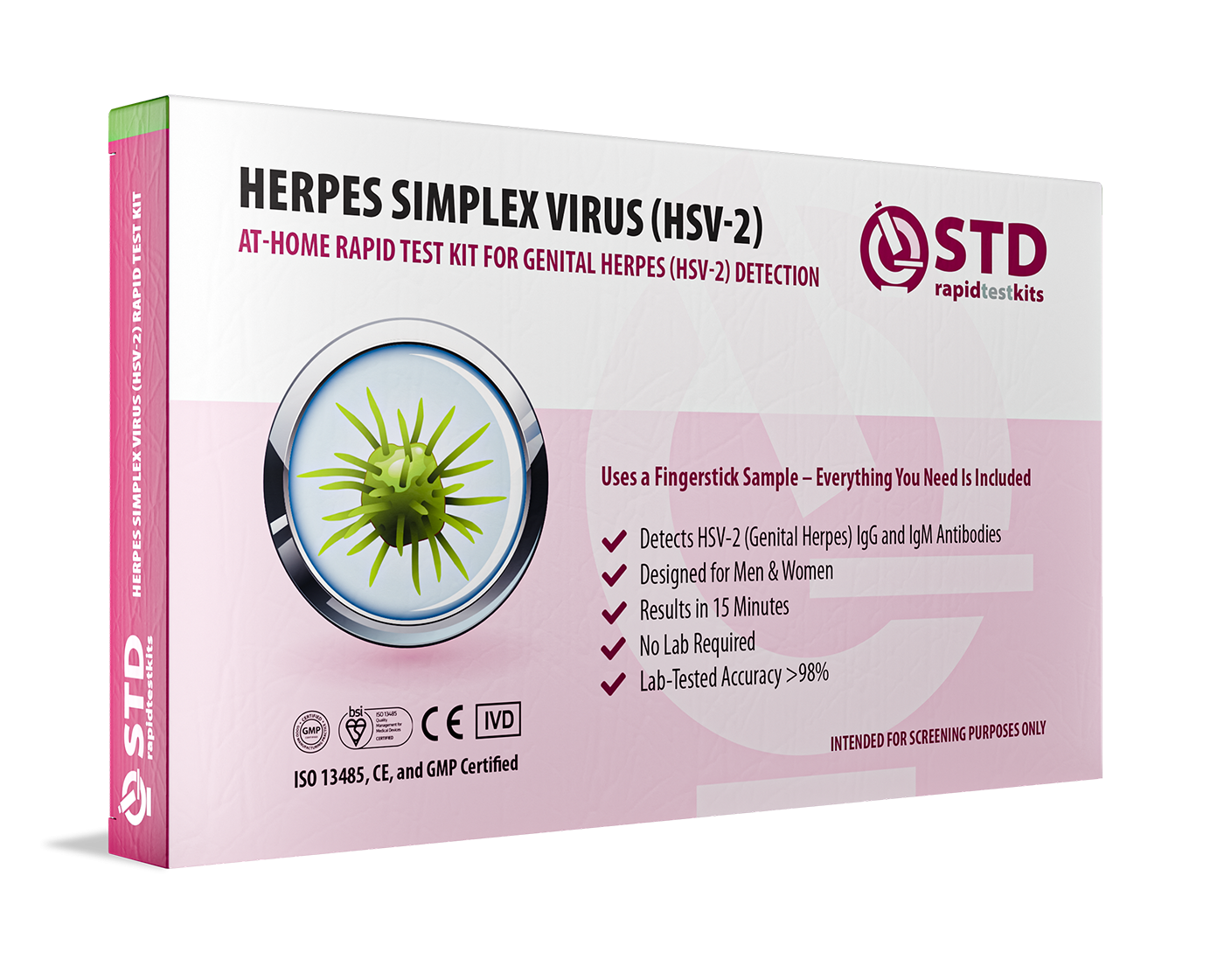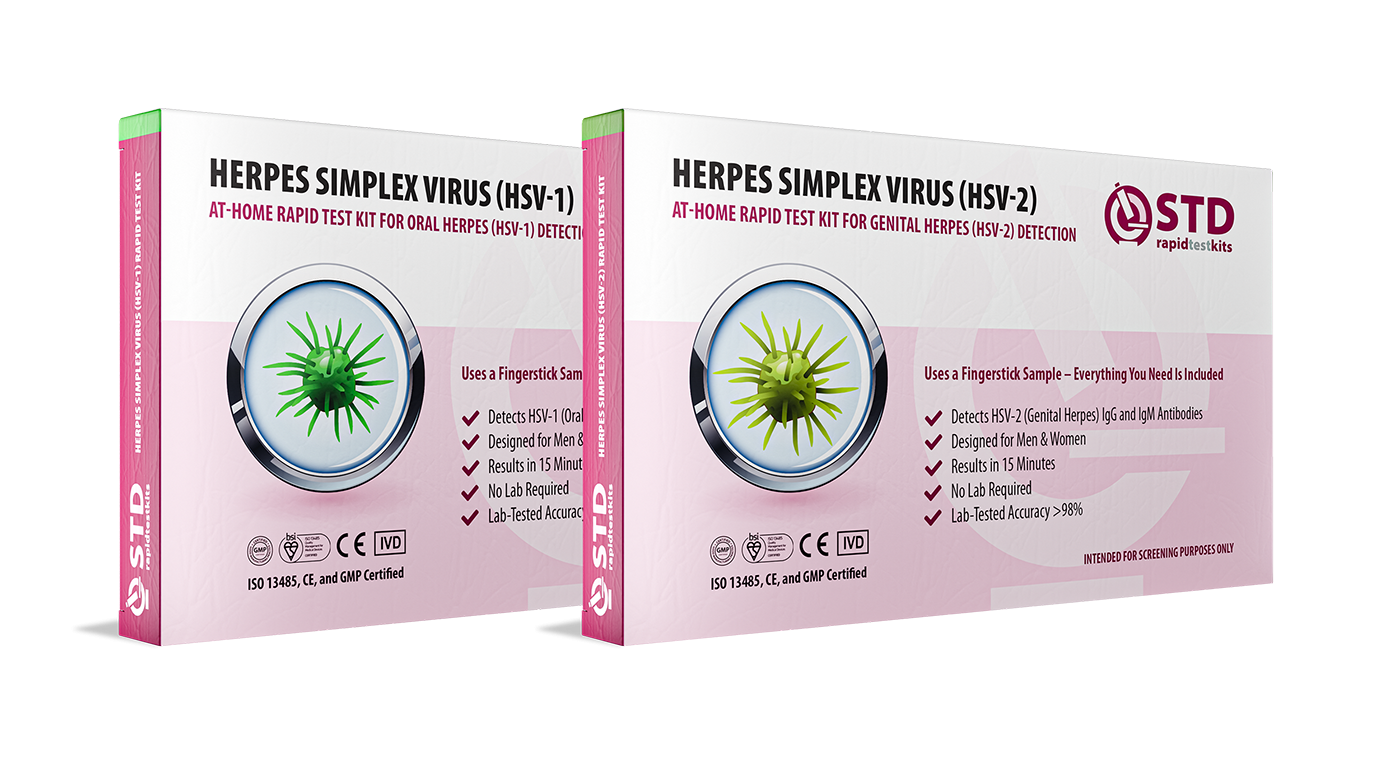Quick Answer: Feeling “dirty” after an STD is a trauma response,not a truth. STDs are common, treatable, and never reflect your worth or cleanliness. Recovery starts with reframing, not shame.
“I Thought I Was Careful”: Where Shame Really Begins
Ty, 28, found out he had HSV-2 (genital herpes) after a monogamous relationship ended. “We only slept with each other. Or so I thought,” he says. “I wasn’t even mad about the cheating. I was just… dirty. I couldn’t shower enough.”
Many people associate STDs with “bad behavior,” promiscuity, or carelessness. That’s what stigma teaches. But the truth is, 1 in 2 sexually active people will contract an STD by age 25. Most won’t know it. And many will find out the hard way,alone, ashamed, and misinformed.
Shame begins where education fails. When we’re taught that STDs are a punishment, not a possibility, we internalize blame. But catching a virus from another human body isn’t a moral failure. It’s biology. It’s exposure. It’s being human.

People are also looking for: Can STDs be mistaken for BV?
The STD Isn’t the Trauma,The Silence Is
When someone finds out they have an STD, the physical symptoms are often easier to manage than the emotional ones. What festers is the silence,the secret-keeping, the double life, the fake smile on a date while wondering, “Should I tell them? Will they freak out?”
That’s what creates the trauma. Not the itch or the sore, but the isolation. The breakdown of trust in yourself and others. The fear that you’re now fundamentally different,marked, ruined, untouchable. None of that is true. But it feels real, because shame is a liar with a loud voice.
A 2022 study published in the journal Adolescent Health found that individuals with an STD diagnosis are twice as likely to report symptoms of anxiety and depression,especially within the first 6 months. The most common trigger? Fear of rejection.
If that’s you right now,panicking quietly, Googling “Is herpes disgusting?” or “Am I gross for having an STD”,you are not alone. You’re not broken. And you’re not the first to feel this way.
Herpes Isn’t Dirty. Neither Is HPV. Neither Are You.
Let’s get blunt. The word “dirty” shows up more in personal STD forums than any medical symptom. That’s a problem. Because STDs are not grime. They are infections, not indictments.
Herpes is one of the most common viruses on earth. So is HPV. Most people who have them won’t know unless they get tested or have symptoms. You could sleep with one person your whole life and still contract something. That doesn’t make you careless,it makes you human.
And just like with the flu, strep, or COVID, transmission happens in ways that don’t involve bad choices. Skin-to-skin. Asymptomatic shedding. One single unknowing encounter. The math doesn’t care about your morals.
Reclaiming your sexual health starts with this truth: cleanliness has nothing to do with worth. You are not “clean” or “dirty” based on a test result. You are simply informed,and now, you’re taking your power back.
What No One Tells You After the Positive Test
Here’s what clinics and school sex ed usually don’t prepare you for:
- Emotional Whiplash: Even if you expected it, seeing the result can feel like being hit by a truck. That’s normal.
- Sudden Identity Crisis: People start questioning their value, desirability, and even their past choices. It’s grief. It’s shock. Not truth.
- Loneliness: Most people don’t know how to talk about it, so they don’t. You’re left alone in the silence.
But here’s what also happens, eventually:
- Resilience: You realize your life didn’t end. Your body heals. Your confidence can too.
- Connection: Disclosure becomes easier. You meet others who’ve been there. Some even thank you for your honesty.
- Empowerment: You stop internalizing shame and start leading with truth.
That transformation,from dirty to empowered,isn’t instant. But it’s real. And it’s yours if you want it.
Check Your STD Status in Minutes
Test at Home with RemediumGenital Herpes Test Kit

 For Men & Women
For Men & Women Results in Minutes
Results in Minutes No Lab Needed
No Lab Needed Private & Discreet
Private & DiscreetOrder Now $45.99 $49.00
“I Have Something to Tell You”: Disclosure Without Panic
One of the scariest parts of reclaiming your sexual health is this: telling someone else. Whether it’s a new partner, a long-term relationship, or even just a friend, saying “I have an STD” feels like stripping down in front of someone and hoping they don’t flinch.
But here’s what we’ve learned,because thousands of people have done it before you: disclosure is not a confession. You are not begging for forgiveness. You are offering informed consent. That’s not shameful. That’s powerful.
Here’s how real people start the conversation:
- “I want to be honest with you because I respect you,and myself.”
- “I’ve tested positive for herpes, which is super common. I manage it well, and I’m happy to talk about what that means for us.”
- “This doesn’t change who I am, but I want to give you space to ask questions.”
Disclosure doesn’t always lead to rejection. In fact, many people report feeling closer to their partners after the conversation. Because vulnerability builds trust,and trust is way hotter than silence.
Still anxious? It’s okay. Practice with a friend. Write it out. Breathe. And if someone responds with cruelty, that’s not about you. That’s about their shame, not your status.
Dating With an STD: You Are Still Desirable
Let’s destroy the myth that having an STD means your dating life is over. Because it’s not. Not even close. People with STDs are dating, hooking up, falling in love, getting married, and living full, beautiful, pleasure-filled lives,every single day.
The key is this: confidence and clarity. You don’t have to overshare. You don’t have to lead with it. You just have to be honest when it matters, and kind to yourself when you’re scared.
Ellie, 31, says,
“I put it in my dating profile. Not the virus name, just that I’m open to conversations about sexual health. That filtered out the weirdos and brought in people who actually cared.”
If that feels too bold for you, that’s okay too. Some wait until the third date. Some say it right before intimacy. There’s no perfect moment,just the right mix of respect, readiness, and risk management.
And when it comes to sex? Yes, you can absolutely still have it,safely, joyfully, often. Many STDs are manageable or fully treatable. Use protection. Know your viral load. Communicate. Pleasure is not canceled.
When STD Diagnosis Meets Trauma: Healing More Than the Body
Sometimes the emotional reaction to a diagnosis is bigger than expected. You may feel flooded, dissociated, or even numb. That’s not weakness,that’s your body protecting itself. It’s a trauma response, and it’s real.
A lot of this comes from past sexual shame, religious guilt, body image struggles, or previous relationship wounds. An STD doesn’t create these issues,it activates them.
Signs that you might be dealing with trauma, not just stress:
- Flashbacks: Replaying the moment of diagnosis or the sexual encounter constantly
- Hypervigilance: Checking your body obsessively for symptoms, even after treatment
- Withdrawing: Avoiding intimacy, dating, or even friends due to shame or fear
You don’t have to process that alone. Trauma-informed therapists, and even Reddit communities like r/STD support can offer solidarity and resources. And healing? It’s nonlinear,but absolutely possible.

People are also looking for: Why is there so much fear around STD testing in immigrant communities?
Reclaiming Sexual Confidence (Yes, It’s Still Yours)
Confidence doesn’t come from being “clean.” It comes from clarity. From knowing your status, owning your story, and choosing intimacy on your terms.
You are not gross. You are informed. You are not undesirable. You are experienced. You are not broken. You are evolving.
Here are some ways to start reconnecting with your sexual self post-diagnosis:
- Self-touch: Rediscover what feels good, what feels safe, what makes you smile
- Body literacy: Learn how your condition actually works,flare triggers, shedding, protection methods
- Sex-positive content: Follow educators and therapists who normalize STD experiences (like @shanboody or @sexpositive_families)
And if you're still spiraling late at night? Remember this: healing isn't about erasing the diagnosis. It's about rewriting the story it tried to tell you.
Case Study: “I Was a Virgin. I Still Got Herpes.”
Melissa, 19, grew up in a conservative home where abstinence was the only sex ed she ever got. “I didn’t have sex. I didn’t even take my underwear off,” she says. “We just fooled around. But a week later, I had a painful sore and tested positive for HSV-1 genitally.”
Melissa’s story blows up every myth about who gets STDs and how. Herpes, like many infections, can spread from oral sex, skin contact, or even through a partner who has no visible symptoms. It doesn’t matter how “good” or “pure” you were. STDs don’t follow moral logic. They follow biology.
“I cried for days. I felt like my body betrayed me. I kept thinking, ‘How could I be so careful and still get this?’”
But three months later, Melissa started speaking about it in group chats and online forums. “Every time I told someone and they said, ‘Me too,’ I felt less disgusting. Now, I feel like I own it. Like it’s just one part of my story,not my identity.”
5 STD Myths That Keep You Stuck in Shame
Myths thrive in silence. Let’s expose them.
Myth #1: Only people who sleep around get STDs
Truth: STDs affect all types of people,from virgins to married couples. It's about exposure, not behavior labels.
Myth #2: If you have no symptoms, you’re fine
Truth: Many infections, like Chlamydia or HPV, are asymptomatic but still spreadable. Only testing can confirm status.
Myth #3: Herpes is rare and disgusting
Truth: Over 50% of adults under 50 have HSV-1 or HSV-2. Most don’t know it. It’s skin-to-skin, not “dirt.”
Myth #4: You’re not desirable anymore
Truth: Desire is not determined by test results. Emotional intelligence, honesty, and connection matter more than status.
Myth #5: Telling someone will ruin everything
Truth: Disclosure can build trust, intimacy, and even make sex safer and more satisfying. Rejection happens,but so does acceptance.
The more we talk, the less these myths hold power. And the less power they have, the more space we create for healing, dating, and pleasure on your terms.
Check Your STD Status in Minutes
Test at Home with RemediumGenital & Oral Herpes Test Kit

 For Men & Women
For Men & Women Results in Minutes
Results in Minutes No Lab Needed
No Lab Needed Private & Discreet
Private & DiscreetOrder Now $75.00 $98.00
For all 2 tests
Sex-Positive Doesn’t Mean Symptom-Free
Sex positivity is often misunderstood as “do what you want, no consequences.” That’s not the point. A sex-positive lens says: you deserve accurate information, freedom from shame, and the ability to make informed, empowered choices,even when things go wrong.
That means knowing the facts without fear:
- HPV: Most sexually active people get it at some point. Many strains clear on their own.
- Chlamydia: Often silent but can affect fertility if untreated. Easily cured with antibiotics.
- Herpes: Not curable, but totally manageable. Most people never recognize their first outbreak.
Knowing this isn’t about being reckless,it’s about being real. And when you’re real with yourself and your partners, sex becomes safer, more honest, and way more satisfying.
What Real Healing Looks Like (It’s Not Linear)
Healing doesn’t happen in a straight line. You might feel empowered one week and spiral the next. That’s okay. Reclaiming your sexual health is a cycle,of grief, relief, courage, and growth.
- Day 1: You panic. You Google everything. You cry.
- Week 2: You read other people’s stories and feel slightly less alone.
- Month 1: You start telling close friends. You feel like maybe it’s survivable.
- Month 3: You date again. You disclose. You don’t die from it.
- Month 6+: You realize you’re still you. Maybe even more so.
There’s no “right” way to move forward. But every step toward clarity, community, and self-compassion counts. Every moment you choose honesty over hiding is a reclaiming.
And remember: your sexual health isn’t just about infections. It’s about agency. Desire. Worthiness. And you’ve always had those,even before the test result.
“But I Trusted Them”: When Betrayal Becomes Part of the Diagnosis
It’s one thing to test positive and not know where it came from. It’s another to test positive and realize someone lied to you. Maybe they knew they had something and didn’t say. Maybe they refused to test. Maybe they told you they were exclusive,and they weren’t.
Jasmine, 26, had been with her boyfriend for a year when she tested positive for Trichomoniasis.
“He swore he’d been tested. He swore he was faithful. I wanted to believe him so badly. But I was the one left crying in the clinic bathroom.”
When an STD shows up in the context of betrayal, the emotional toll can double. Rage. Shame. Grief. Gaslighting. You’re not just processing a virus,you’re mourning trust. That’s not drama. That’s real.
Here’s what helps:
- Validate your anger: You’re allowed to feel used, misled, or furious. Your body was involved,your consent matters.
- Reclaim the narrative: The betrayal was theirs. The healing is yours.
- Get support: A therapist, a friend, or even anonymous STD communities can remind you: you’re not crazy, and you’re not alone.
STDs happen. Betrayal happens. But neither defines you. You’re allowed to feel broken and still rebuild stronger.

People are also reading: STD Symptoms Doctors Miss in Black Women, And Why It’s Deadly
“Clean” Isn’t a Status,It’s a Stigma
One of the most harmful words we use around STDs is “clean.” As in: “I’m clean, are you?” “He said he was clean.” “She looked clean.”
This language reinforces a toxic binary: that people with STDs are dirty, dangerous, or lesser. It implies that an invisible virus negates your integrity, desirability, or humanity.
Let’s replace that:
- Instead of “clean,” say: “I tested negative,” “I’m up-to-date on my screenings,” or “My last test was clear.”
- Instead of asking “Are you clean?” try: “Have you been tested recently?” or “When was your last screening?”
Using neutral, informed language doesn’t just reduce shame,it improves safety. People are more likely to disclose, to test, and to talk openly when they don’t feel judged for existing in their bodies.
You’re not “clean” or “dirty.” You’re a whole person navigating sex, risk, intimacy, and health like everyone else. That’s not shameful. That’s human.
FAQs
1. Can you get an STD even if you used a condom?
Yes. Condoms reduce risk but don’t eliminate it entirely. Skin-to-skin STDs like herpes and HPV can still transmit through uncovered areas.
3. Why do I feel so ashamed after getting an STD?
Because we’re conditioned to associate STDs with dirtiness or “bad” choices. That shame is cultural, not biological,and it’s not your fault.
3. Is herpes really that common?
Extremely. Around 1 in 6 people in the U.S. have genital herpes. Most never show symptoms or know they have it.
4. How do I tell someone I have an STD?
Be honest, clear, and calm. You’re not confessing a crime,you’re giving someone information they deserve. Practice helps.
5. Can you date normally after an STD diagnosis?
Absolutely. Many people date, hook up, and fall in love after a diagnosis. Confidence and clear communication make a huge difference.
6. Do I have to tell every partner I’ve ever had?
No. Focus on informing current or recent partners who may have been at risk,especially for treatable infections like chlamydia or gonorrhea.
7. Is there support for people with STDs?
Yes. Online forums, local clinics, and therapists can offer stigma-free guidance and emotional validation. You're not alone.
8. Can I get rid of herpes completely?
No, herpes is a lifelong virus, but it’s manageable. Outbreaks can be reduced with medication, and many people go months or years without symptoms.
9. What’s the best at-home test for STDs?
Combo test kits that check for multiple infections,like chlamydia, gonorrhea, and HIV,are a discreet, accurate way to get peace of mind.
10. Is “clean” the right word to use after testing negative?
No. It reinforces stigma. Try “I tested negative” instead,it's more accurate and respectful.
You Deserve Answers, Not Assumptions
This isn’t about being perfect. It’s about being honest,with yourself, with partners, and with your body. An STD doesn’t make you dirty. Silence and shame do. But you can break that cycle.
You are still lovable. Still desirable. Still worthy of pleasure, connection, and truth.
Don’t wait and wonder,get the clarity you deserve.
Sources
1. CDC – STD Data and Statistics
2. Journal of Adolescent Health
3. Planned Parenthood – Get Tested
4. Psychological Impact of STD Diagnosis – NCBI










